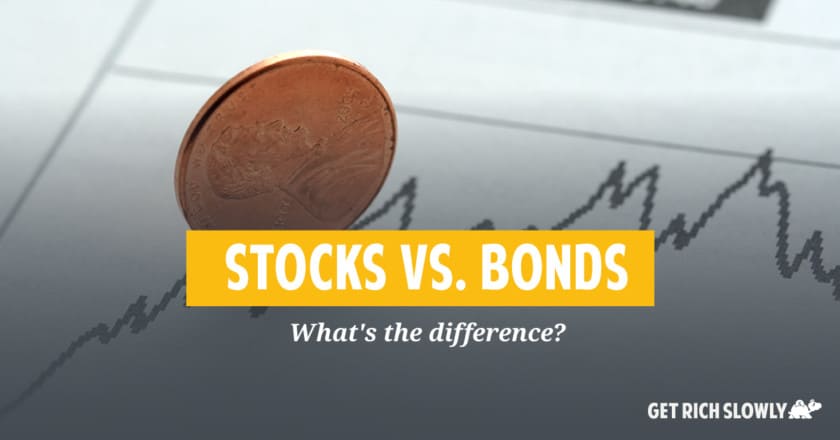I lost money in crypto so that you don’t have to!
One morning just over ten years ago, I had an interesting conversation at the Crossfit gym. I was "rolling out" — using a foam roller to break up tissue — with the usual group of guys, when one of my buddies brought up this new thing called Bitcoin.
"Bitcoin is digital money," he said. "But it's completely private and not tied to a government."
"How does that work?" I asked. From the very first moment I heard about cryptocurrency, it didn't seem to make any sense. My friend tried to explain. We all chatted about it for a few minutes, and then we lifted heavy weights and/or sweated extensively and/or both of the above.
Your First Rental Property

It's official: Kim and I have moved from Portland to Corvallis, Oregon. We closed on our home — a 1964 daylight ranch with fully converted basement — at the end of August, and we've spent the past six weeks moving and unpacking. I thought I'd have time to post the gory details of our purchase, but obviously that hasn't happened. We've been too busy!
The short version is this: After offering $128,000 over asking on our dream home (and still losing out to a cash offer), we came close to joining in another bidding war on a similar house. But we didn't. While other folks were bidding up a place down the street from $589,000 to $707,000, we snuck into a home we liked better for $680,000 — just $5000 over asking. We got lucky.
And while I was worried that we might experience buyer's remorse, I'm pleased to report that absolutely has not happened. We love our home and we love Corvallis. How could we not?
<Series I savings bonds: A safe investment with a high return

I get a lot of questions about money. These questions tend to vary based on the asker and her needs, but there's one question I get more often than any other: "What's a safe investment with a high return?"
For the past decade or so, I've had no answer to this question. Savings accounts and certificates of deposit are safe, sure, but they're no longer attractive investments. Since the Great Recession of 2008/2009, interest rates have remained shockingly low. This is by design. The government doesn't want you parking your money in a savings account. They want that money out circulating in the economy.
Over the long term, the stock market offers excellent returns. But when people are asking for "safe" investments, they're wanting avoid short-term volatility, which means stocks are out of the question. (And stuff like Bitcoin and precious metals are even more out of the question!)
Stocks vs. bonds: What’s the difference?

If you’re a newbie investor, you may have no idea what you’re doing when it comes to investing in the stock market. If so, don’t feel bad - you’re not alone. According to Gallup, in 2019, only a little over half of all Americans were invested in the stock market. But this is a huge mistake.
If you want to build wealth, especially long-term wealth, investing in the stock market is a necessity.
But why? Couldn’t you just invest in real estate, or precious metals like silver and gold, or even a new-fangled investment like cryptocurrency to reach your financial goals? While you could, you’d be missing out on one of the greatest (if not the best) wealth creators of all time.
If y
What are dividends, and how do they work?
If you’re a stockholder, you’ve likely felt the rush of adrenaline as you watch the value of your portfolio surge.
But the market doesn’t always go up. Sometimes it goes up and then spikes down, and other times it’s like riding a violently rocky ship, crashing through the waves. If the rocky waters scare you, you may decide that focusing on dividends, rather than capital gains, as a source of return may make more sense for you.
But what exactly are dividends, and how does this source of income work?
Betterment Review
Algorithms seem to be in control of everything these days, from the ads we see on Facebook, the shows we watch on Netflix, to what we find when we search on Google.
But what if there were an algorithm that could help you invest smarter? Something that could maximize returns and minimize risk, while possessing smart features such as automatic rebalancing and tax-loss harvesting?
Especially for new investors, wouldn’t it make sense to give this a try? Continue reading...
Wealthfront Review
Robo advisors are still a relatively new product, and yet every year they seem to grow in popularity. One such advisor, called Wealthfront, is one of the largest automatic investment and financial planning services out there.
It’s also one of the most decorated, winning the “Best Robo Advisor of 2019” award, and the “Best Robo Advisor, December 2019” award.
But robo advisors are a dime a dozen these days. Why should you Wealthfront over another company like Betterment?
W
What is a robo-advisor? An introduction to automated investment tools

One of the joys of writing a money blog like Get Rich Slowly is the continuing self-education. I'm always reading and learning about personal finance. A lot of the times -- as in the past month -- this education is about esoteric topics. I'm currently diving deep into the history of personal finance, a subject that's interesting to me but admittedly not of much practical use in the modern world. (Today in the mail, I got a book about advertising and the use of credit during the 1920s. How's that for esoteric?)
But sometimes, this self-education does have practical uses, and it's stuff that I can share with you folks so that you too can become better educated.
For instance, I have a huge blind spot when it comes to so-called "robo-advisors". When I stopped writing here in 2012, robo-advisors existed but they hadn't yet become a Big Deal. By the time I re-purchased this site in 2017, things had changed. Robo-advisors had become a major force in the investment industry -- and I was clueless about what they were.
Who invented the index fund? A brief (true) history of index funds

Pop quiz! If I asked you, "Who invented the index fund?" what would your answer be? I'll bet most of you don't know and don't care. But those who do care would probably answer, "John Bogle, founder of The Vanguard Group." And that's what I would have answered too until a few weeks ago.
But, it turns out, this answer is false.
Yes, Bogle founded the first publicly-available index fund. And yes, Bogle is responsible for popularizing and promoting index funds as the "common sense" investment answer for the average person. For this, he deserves much praise.
What’s the best long-term investment strategy?

What's the best long-term investment? Because you're a money nerd (and a GRS reader), I hope your answer to this question was, "Stocks!" If the future is anything like the past, that's the correct answer. History has shown that stocks are the best long-term investment -- and by a wide margin.
Unfortunately, most Americans believe otherwise.
As a part of its annual Economy and Personal Finance survey (conducted during the first two weeks of April), Gallup News asked 1017 American adults, "Which of the following do you think is the best long-term investment: bonds, real estate, savings accounts or CDs, stocks or mutual funds, or gold?"